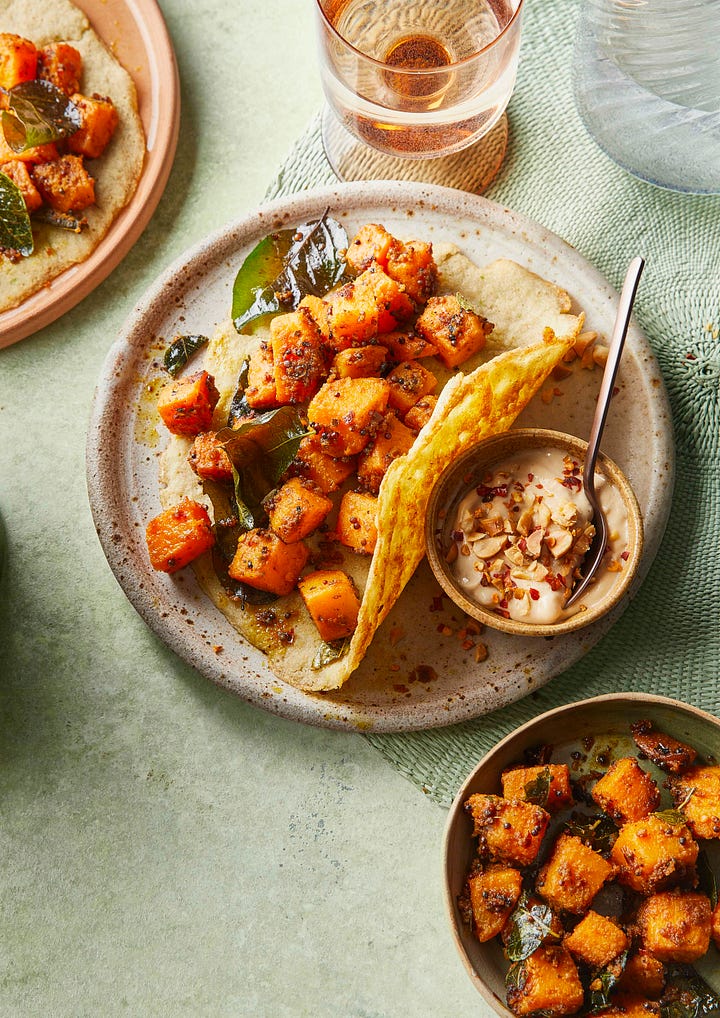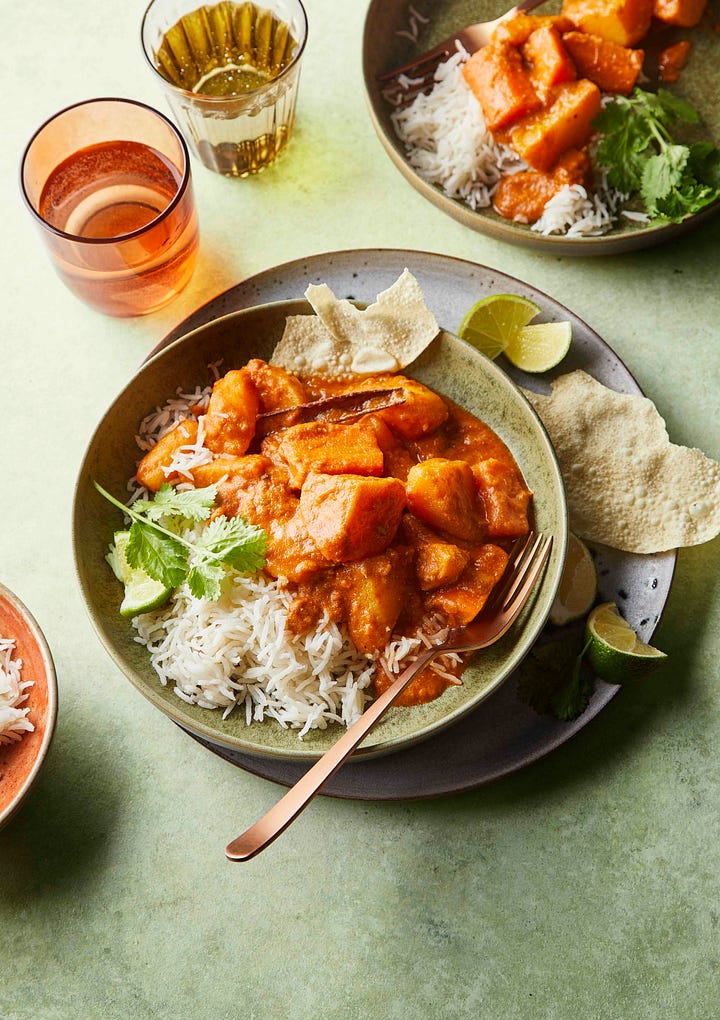It’s been an interesting turn of events for Veganuary. Once the all important push to embrace a vegan lifestyle, it’s had a slew of negative publicity with plant-based brands distancing themselves from the campaign. The need for us to eat less meat and meat-related products hasn’t gone away, so whatever happened with Veganuary and what can meat lovers do now?
Veganuary was established in 2014 to encourage a month-long commitment to plant-based eating for its ethical, environmental and health benefits. It’s been hugely successful in converting millions of people - over 25 million of them to be precise. Fast forward to 2025, and the campaign has taken some critisicm for its “WEIRD?” campaign. It featured provocative imagery and messages, such as grilled sausage bodied pigs and udders in a mug, to draw attention to pork encased in pig intestines and cow's milk being intended for calves.
While designed to prompt reflection and action, it was, well, weird and out of touch. Anyone who is put off meat and meat products for animal welfare concerns or because they don’t like the idea of eating these products or their taste is already converted. The rest of us are the real problem. You know, the ones that find animals cute but still want to eat them. The ones that have disassociated from the daily suffering of animals being reared unnaturally and killed, and the impact this has on them and on nature. This is known as cognitive dissonance. Rob Pervical, head of food policy at the Soil Association, wrote a whole book about this called The Meat Paradox.
(I am very much in this group of people. As you’ll know if you’ve been subscribed here long enough, this is a no judgement zone. Please don’t troll me or my readers here if you’re vegan, as I deeply respect your life choices and expect the same in return.)
I’ve resolutely held on to meat and dairy love standing strong in the face of angry animal lovers and vegan trolls. In fact, they made me more committed not to give up what I hold dear. I am not alone. No one enjoys being forced to behave a certain way, or having fingers wagged in their face. When you get backed into a corner it’s easier to shut down than engage. And herein lies the problem. We need to eat about 30% less meat than we do now for health and environmental reasons. While ruminant animals are the worst climate culprits for all their methane burping, turning to factory farmed chickens and fish comes with its own slew of problems.
The businesses spotting an opportunity to replace these beloved items on our plates and in our mugs are hard at work. I hosted the culinary theatre at the Plant-Based World Expo for Nigel Barden as he dashed to present the World Cheese Awards in Portugal. I took a keen interest in the products on display and was struck by their breadth. It featured everything from mushrooms fashioned into meatballs, fava beans into cheese, indigenous products like Japanese Konjac (Konyaku root) and the Brazilian babaçu nuts to, of course the mainstay of fake meat - soya, pea and wheat protein. (If you didn’t know, Buddhist monks in China were well ahead of the game using wheat gluten, soy protein and mushrooms to create plant-based versions of meat centuries ago!)
Ingredient labels were high on the agenda given the interest in Ultra Processed Products. The conversation was not just about the length of the labels but also what’s on them/in the product. Importantly, these products are not being designed to replace vegetables and fruit. They are being created to replace meat and dairy products for those who want to eat less of them without missing the taste. So far, the market hasn’t mastered cost, taste, nutrition and availability. While investment is continuing apace, many players have exited the market and the verdict from attendees at PBWE was that it was more muted than previous years. While only the most passionate of plant-based punters remain, but the sector does cover a wide gamut of products and brands.
In amidst this background, Veganuary’s combative stance has landed badly. Here’s why:
People prefer a flexible approach to a militant, strict vegan lifestyle: The Vegconomist reported that while only about 3% of European consumers identify as vegan, approximately 27% now take a 'flexitarian' approach, incorporating plant-based meals without fully eliminating animal products. While the interest in plant-based meals has been going up, adopting a full vegan lifestyle is less popular. Someone described themselves to me as a “reducitarian”, which made me spit out my tea. I like the concept, but let’s hope the term doesn’t stick. I prefer plantennial, or perennially plant-based, but this might evoke a similar reaction in you…
Many vegan products have been tainted by the ultra processed problem: As Elin Roberts, co-founder of Better Nature Tempeh notes in a piece in The Grocer, “vegan foods have lost their health halo”. The debate around ultra processed food has hit the category hard and it’s not really fair to compare tempeh, tofu and beans with soya protein chunks that mimic meat with a slew of unrecogniseable ingredients. Not all alt protein fake meat products are of dubious nutritional value, but the market is yet to hit the mark. It’s no wonder the ones at the more “natural” end of the spectrum want to distance themselves from the others. Elin noticed the turn in 2022 from customers, and said to me:
It used to be that once you said something was vegan people would assume it was healthy and better for the planet (and of course animals). Whereas now it actually puts people off, sadly. Ironically, people are more drawn to plants than ever though, so it seems to be much more down to how foods are positioned vs vegan or non vegan foods. And of course how processed/unnatural the vegan products are plays a big role.
Eating more plant-based food is increasingly becoming more normal: There is growing awareness of the need to reduce our meat intake. There are more options available to us in shops, restaurants and recipe features. Brands like Bold Beans have done remarkable things to increase the acceptance of pulses. Young people especially are leading the charge with their intentions to go meat free. UK research shows that half of generation Z (50%) and over a third of millennials (36%) plan to follow a meat-free diet in 2025, compared to just 1 in 10 baby boomers (10%). I did note, however, an Oyster mushroom slid down my teen queen’s throat rather slowly and I’m yet to report feeding success with tempeh, so I watch this space intently.
We still need to solve the meat problem, and Veganuary is looking less than the best solution for it. I attended a thought-provoking and well-timed event hosted by Dal entrepreneur Grace Regan to talk about exactly this. Her panellists included David Edwards, deputy CEO of the Food Farming and Countryside Commission, Andy Shovel, co-founder of animal welfare non-profit A Bit Weird and plant-based meat alternatives company THIS, and Ben King, founder of online farmer’s market Herd Market.
My big takeaway from the event was that meat is not the problem. The impact of meat is the problem. All animals are not the same. The way we eat meat isn’t right. But it’s not changing any time soon, and affordability will play a big part on whether we can make the change to eating less meat of better quality. Perhaps one way to embrace more vegan food is to take a longer term view and learn to be better at eating plants? Maybe normalising and upping this doesn’t need a name or a month after all. But then, how do we jumpstart change during the new year, new me season? What do you think?
Hello plant-based, winter warmer recipes…
I’ve done my bit to kick the year off in the right direction and hope to be way more plant-based this year. When Waitrose asked me to file four winter warming recipes that led with plants for their themed January issue, I was delighted to get thinking.
Spices and flavour are my thing, and these are natural bedfellows to bringing the best out of vegetables, grains and more. This is what I filed, here’s the link to the issue if you’d like to make any of them:
1. Lentil pancakes & gunpowder potatoes with instant coconut, peanut and tamarind chutney. Inspired by dosa but no fermenting and I used lentils sold at Waitrose ofc
2. Kedgeree-style monkfish rice. Brown, red and carmargue & wild rice did very well here!
3. Roasted cauliflower & cashew soup with chaat masala croutons
4. Root Vegetable Rogan Josh. Even better the next day!
Wishing you all a year of health, wealth and happiness.









I just watched you cook those gunpowder sweet potatoes, and they look so good.
I am eating less meat these days, mostly by way of just increasing the amount of vegetable based meals I cook. I still eat meat and dairy, but my husband eats much more meat than I do because he's not a fan of cooked vegetables. (Texture issues)
I enjoy greens, I love beans and lentils and left to my own devices meat would be just an occasional treat.
I've never quite got on with tofu, but I do love the TVP products so often I'll use those in a curry or casserole and not meat and find I enjoy them equally.
I definitely understand the argument that people do not want to be forced into veganism. If changing the habits of people was easy when based on facts, nobody would still smoke tobacco today.
And there is some kind of enlightenment in making the shift on one's own, and not as the pressure of the environment. I'm vegan and I'm the further from being a zealot: I often tell people that I have likely eaten more meat in the past than some could have in their entire life (disclaimer: this is absolutely not data-based), and as so I would hardly have any authority. All I can do is show alternative and answer to questions.
It can be frustrating at times to see the world as a vegan while others don't. A photography or a drawing of an animal with a text bubble "yummy!" or "you'll love eating me" ("suicide food" as it is called) is perceived by vegans as provocative as I understand the "WEIRD?" campaign was. However it's a difficult exercise to spread the word the right way, especially if campaigns like Veganuary don't help present it from its most acceptable perspective.
By the way, I discovered Veganuary in late 2010s and I enjoyed vegan pizzas at Pizza Hut in London in 2019 (definitely not the healthiest vegan meal!). I don't recall seeing Veganuary in FR, BE, LU or DE until last year. I hope the movement will grow in continental Europe, and that campaigns are made so it draws the interest of the public.